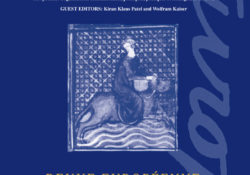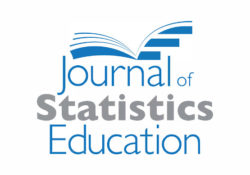
tandfonline.com har udgivet en rapport under søgningen “Teacher Education Mathematics”: ABSTRACT ABSTRACT Background: Scientific thinking is an essential learning goal of science education and it can be fostered by inquiry learning. One important prerequisite for scientific thinking is procedural understanding. Procedural understanding is the knowledge about specific steps in scientific inquiry (e.g. formulating hypotheses, measuring dependent and varying independent variables, repeating measurements), and why they are essential (regarding objectivity, reliability, and validity). We present two studies exploring students’ ideas about procedural understanding in scientific inquiry using Concept Cartoons. Concept Cartoons are cartoon-like drawings of different characters who have different views about a concept. They are to activate students’ ideas about the specific concept and/or make them discuss them. Purpose: The purpose of this paper is to survey students’ ideas of… Continue Reading →
Like this:
Like Loading...
tandfonline.com har udgivet en rapport under søgningen “Teacher Education Mathematics”: ABSTRACT ABSTRACT Background: There is a growing view that ‘Big Ideas of science education’ are useful for teaching science but there is not much knowledge of how teachers work with them. Purpose: This study explores the conceptualisation and practice of the use of Big Ideas of science education by primary and secondary teachers in Chile. Sample: A total of 63 science teachers (a purposive sample) from pre-school, primary and secondary education in Valparaíso Region in Chile participated in the study, with 38 of them answering all the questions in the research instrument and 25 answering some of them. Design and methods: The research instrument was a questionnaire with open-ended questions. Results: The use of Big Ideas was seen as the… Continue Reading →
Like this:
Like Loading...
eric.ed.gov har udgivet: This article reports the findings of a study designed to examine the influence of multimodal writing on the communication of mathematical ideas. Elementary school students (ages 8-13) were required to write mathematics notes using two digital writing technologies, a personal digital notepad and a social mathematics blog, in the context of a formal intervention. Forty-two students participated, across three schools. The study showed that when students wrote notes that could be assessed for correctness, their answers were predominately right, indicating that mathematical sense-making was taking place. It also showed that the digital notepad and blog were used differently and that the type of technology influences the writing content. Moreover, students’ mathematical writing were understandable by their peers and students collaboratively explored solutions. Younger students were more likely… Continue Reading →
Like this:
Like Loading...
eric.ed.gov har udgivet: Contemporary state math standards emphasize that students must demonstrate an understanding of the mathematical ideas underlying the computations that have typically been the core of the elementary school math curriculum. The standards have put an increased emphasis on the study of fractions in upper elementary grades, which are the years during which students build a strong foundation in fractions concepts. At the same time, the National Mathematics Advisory Panel (2008) cites limited understanding of fractions as the key reason for the high failure rate in algebra courses. Longitudinal data from both the United States and the United Kingdom have demonstrated that knowledge of fractions in the elementary grades plays a powerful role in subsequent success in algebra, the gateway to math achievement in high school. Members of… Continue Reading →
Like this:
Like Loading...
tandfonline.com har udgivet en rapport under søgningen “Teacher Education Mathematics”: Abstract Abstract International organizations are ubiquitous in contemporary Europe and the wider world. This special issue takes a historical approach to exploring their relations with each other in Western Europe between 1967 and 1992. The authors seek to ‘provincialize’ and ‘de-centre’ the European Union’s role, exploring the interactions of its predecessors with other organizations like NATO, the OECD and the Council of Europe. This article develops the new historical-research agenda of co-operation and competition among IOs and their role in European co-operation. The first section discusses the limited existing work on such questions among historians and in adjacent disciplines. The second section introduces the five articles and their main arguments. The third section goes on to elaborate common findings, especially… Continue Reading →
Like this:
Like Loading...
tandfonline.com har udgivet en rapport under søgningen “Teacher Education Mathematics”: Facts and Ideas from Anywhere Link til kilde
Like this:
Like Loading...
eric.ed.gov har udgivet: The objective of this study is to understand how the perception of teachers might change after they participate in a training program on the use of non-formal educational places (NFEP). The design of the study is ethnographic and its methodology is qualitative. The study comprehends the analysis of three multiple cases according to the disciplinary area, including teachers of primary education, biology, and physics. The analysis was focused on the discourse of the participants, establishing eight categories which were previously validated through triangulation by time and by instruments. The study concludes that the participants were able to restructure their ideas about the use of NFEP for teaching, showing mainly ontological and epistemological changes, which are discussed in the paper. Link til kilde
Like this:
Like Loading...
eric.ed.gov har udgivet: Carol Ann Tomlinson, a professor at the University of Virginia Curry School of Education, has led the push for differentiated instruction and sees a strong commitment by educators to tailoring teaching to student academic levels, learning styles, and personal interests. However, Tomlinson says barriers still stand in the way to making sure every child gets what he or she needs. One hurdle, says Tomlinson, is that teachers have to do something that’s both basic and difficult: forget how they were taught as children. Before attempting to tier a lesson to make it appropriately challenging for individual students, or alter an activity to meet the needs of certain learners, teachers should decide what they want their students to know and do at the end of the instruction. Then,… Continue Reading →
Like this:
Like Loading...
tandfonline.com har udgivet en rapport under søgningen “Teacher Education Mathematics”: Abstract Formulae display:?Mathematical formulae have been encoded as MathML and are displayed in this HTML version using MathJax in order to improve their display. Uncheck the box to turn MathJax off. This feature requires Javascript. Click on a formula to zoom. Abstract While computing has become an important part of the statistics field, course offerings are still influenced by a legacy of mathematically centric thinking. Due to this legacy, Bayesian ideas are not required for undergraduate degrees and have largely been taught at the graduate level; however, with recent advances in software and emphasis on computational thinking, Bayesian ideas are more accessible. Statistics curricula need to continue to evolve and students at all levels should be taught Bayesian thinking. This… Continue Reading →
Like this:
Like Loading...




